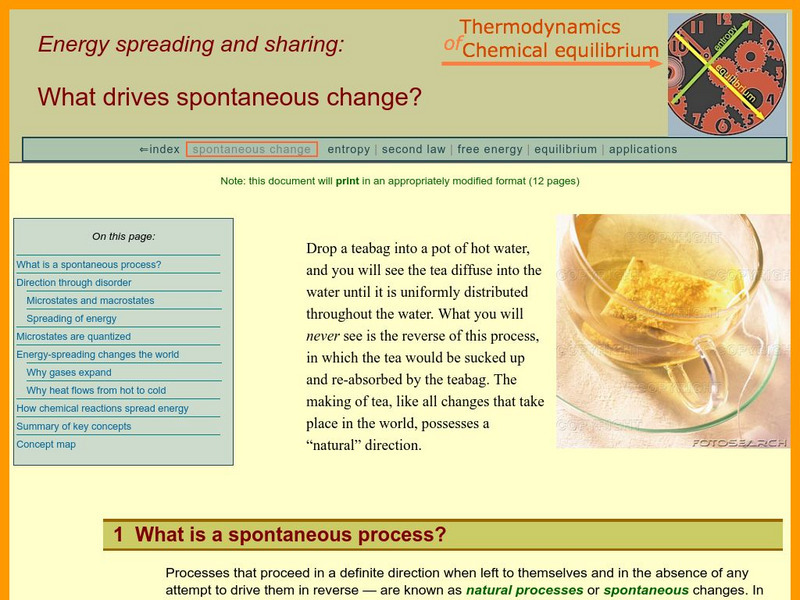CK-12 Foundation
Ck 12: Life Science: 2.1 Elements and Compounds
Learn how basic elements form molecules to support life.
Other
Port Discovery Children's Museum: Stem at Home: Bouncy Egg Experiment
Would you believe us if we told you we could make an egg bounce without breaking? Check out this experiment. It requires just three ingredients and five easy steps to learn how to bounce an egg.
Science Buddies
Science Buddies: Test Your Foods for Starch
There is a simple chemical test that you can do to detect starch, which involves an iodine solution. The iodine solution turns any food that contains starch dark blue. Try this activity and watch it in action yourself.
Science Buddies
Science Buddies: Explore Enzyme Activity With Toothpicks
In this activity, you will simulate an enzymatic reaction and explore what factors affect the activity of an enzyme.
Science Buddies
Science Buddies: Make a Fire Snake
With a few simple ingredients, you can create a "fire snake" that appears to grow out of nowhere. Although it looks magical, no magic is involved-it is all because of a chemical reaction.
Concord Consortium
Concord Consortium: Where Does All the Energy in an Explosion Come From?
In this module Activity 4 investigates How does a spark trigger an explosion?
Khan Academy
Khan Academy: Aldol Reactions in Metabolism
Aldol and retro-aldol are two important classes of chemical reactions, occasionally encountered in biochemistry too.
Utah Education Network
Uen: Recognizing Chemical Reactions
Students will add 4 chemicals to a beaker and observe the changes that take place. They will classify them as physical or chemical changes.
Science Buddies
Science Buddies: Explore Enzyme Activity
In this science activity, you will investigate the enzyme called catalase to find out how it helps to protect your body from cell damage.
Science Buddies
Science Buddies: Milk Curdling With Enzymes!
Do this activity to find out how to make milk curdle.
Other
Nearpod: Endothermic & Exothermic Reactions
In this lesson on endothermic and exothermic reactions, students explore chemical reactions, energy transfer, and energy diagrams.
Khan Academy
Khan Academy: Cyclic Hemiacetals and Hemiketals
Provides a discussion of cyclic hemiacetals and hemiacetals and how they are formed.
Concord Consortium
Concord Consortium: Stem Resources: Making Heat
In this activity, students perform a reaction with different concentrations of reactants and monitor the temperature of the reaction. Activity contains procedure, analysis questions, and graph template. Students can save their answers...
Chem4kids
Chem4 Kids: Physical Chemistry Basics
Discover what physical chemistry is all about in this brief overview.
Simon Fraser University
Chem1 Virtual Textbook: Energy Spreading
With an overview of topics related to chemical energetics, this site provides a foundation to a study of thermodynamics and information on energy spreading. Topics covered include quantum states, microstates, and energy spreading,...
Simon Fraser University
Chem1 Virtual Textbook: The Fall of the Electron
With an overview of topics related to chemical equilibrium, this site provides a foundation to a study of thermodynamics and electrons. Included in the discussion is information on oxidation-reduction reactions.
Wikimedia
Wikipedia: Activation Energy
This site from the Wikipedia encyclopedia contains a qualitative explanation of activation energy, explaining what it is and why it is necessary. Links are also provided throughout the article for additional information.
Instituto Latinoamericano de la Comunicacion Educativa
La Ciencia Para Todos: Quimica
Some of the topic discussed here are electrode, electrochemical corrosion, cathode protection, soil erosion, heat and work, chemical reaction and heat, the green house effect and the kitchen and chemistry.
PBS
Pbs Teachers: Rising Ice Experiment
Observe how ice and salt crystals interact by using salt to help adhere a string to the top of an ice cube in a glass of water, then lift the cube out of the water.
PBS
Pbs Teachers: Submarine Race Experiment
Balance the force of gravity with the force of the expanding gasses created by mixing baking soda and vinegar. Create a soda bottle submarine that sinks to the bottom of the bathtub and then rises back to the surface.
Other
The Science House: Dancing Spaghetti
The chemical change of matter is illustrated in this lab experiment when spaghetti is placed in a solution of baking soda and vinegar. Watch the spaghetti rise to the surface and sink again once the gas is released.
Other
Science House: Ice Cream
Experiment shows students how to use the lowered freezing point of water to chill another mixture (ice cream) to the solid state. Teacher's notes provide background information.
Concord Consortium
The Concord Consortium: Molecular Workbench Glycogen Phosphorylase
Wath an animation that shows how enzymes break down glycogen into glucose subunits.
PBS
Pbs Teachers: Scientific American: Beneath the Sea: Light Stick Chemistry
Explore chemiluminescence and describe how the temperature of the chemicals that combine in a light stick affects the reaction. Apply that knowledge to understand bioluminescence in deep-sea marine life.














